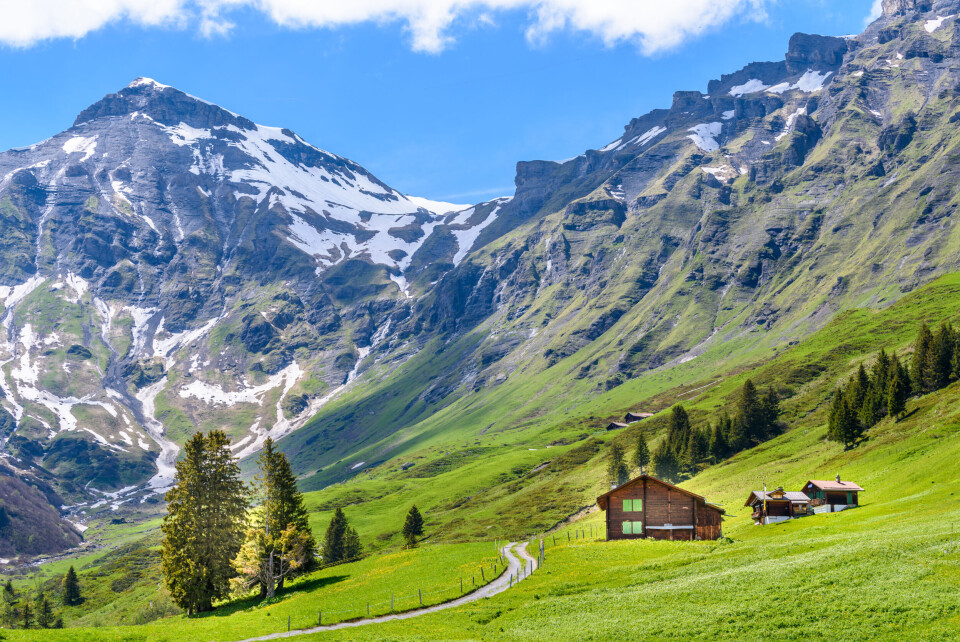-
Watch: French paraglider’s fun (and moving) video for his father
Aerial alpine views accompany an inspiring reminder to listen to your inner voice
-
Step back in time for some ‘dinosaur’ planting in your French garden
Captivated in the garden this month by one species of plant that dates back 200 million years, and another which is one of the oldest flowering plant families on the planet
-
Winter tyre rules mandatory in French mountain areas from November
See which departments require the tyres and which only partially apply the law
Climate change: Snow disappearing from Alps, France included
Vegetation cover above the tree line has increased by 77% in 40 years, in a phenomenon known as the ‘greening’ of the Alps, scientists have confirmed

Snow is disappearing from the Alps and being replaced by increased vegetation due to climate change, scientists have warned.
Researchers from the universities of Basel and Lausanne, Switzerland, have just published an article to that effect in the journal Science.
Their report analysed almost 40 years worth of aerial images of the Alps, taken between 1984 and 2021 by four generations of satellite cameras, with the aim of quantifying how much vegetation has increased.
Professor Grégoire Mariéthoz, director of the Institute of Land Surface Dynamics at UNIL, and co-author of the study, said: “The ‘greening’ of the Alps was a known phenomenon, but it was not possible to measure the depth of this trend, which is now massive.
“We were able to aggregate a lot of data and reach a level of detail never before achieved, showing, pixel by pixel, the temporal evolution of certain regions of the Alps. The fact that such a change is visible in less than forty years is an indication of the sensitivity of the Alps to global warming.”
The vegetation coverage of the Alps, at the tree line (about 1,700 metres altitude), has increased by 77%, the study showed. These new ‘fields’ now cover areas that were previously rock.
This confirms the effects of global warming in the area, as well as the retreat of major glaciers, said Professor Mariéthoz. Increased greenery sets off a cycle of increased warming, researchers said.
Professor Sabine Rumpf, the lead author of the study and head of the Ecology research group at the University of Basel, said: “Greener mountains mean less reflection of sunlight, which will further increase warming and in turn decrease the snow coverage and its reflectivity.”
Alpine biodiversity is already considered to be fragile, and is set to suffer even more as higher altitudes will be colonised by species that usually live at lower altitudes. Even though alpine species are generally very adaptive, they can lose their advantage if the environmental conditions change.
Professor Mariéthoz warned: “A flower such as the Edelweiss is especially threatened by this phenomenon.”
Professor Antoine Guisan, a professor at UNIL and co-author of the study, added: “Previous analyses of satellite data had not identified such a trend.”
And while researchers had hoped that the increased vegetation could have a positive impact on CO2 absorption, they said that in fact: “The biomass observed is rather small and its capture power is therefore very limited, so the effect should be negligible.”
The report predicted that the Alps could, one day become exclusively “green mountains”, in a similar way to the Jura, but this is not set to happen too imminently.
Prof Mariéthoz said: “When the snow disappears, it takes about forty to fifty years for it to be colonised by vegetation.”
The report looked at the Alps during the summer season only, and also excluded glaciers from their observations (as they are already being monitored closely).
In better news, however, the year-round snow areas appear to be resisting the trend so far. Snow cover in the areas has reduced by 10% since 1984, which is considerable, but less than expected.
Related articles
French ski stations prepare for 'no snow' by 2030
Floods, heatwaves: New report predicts global warming effect on France
























